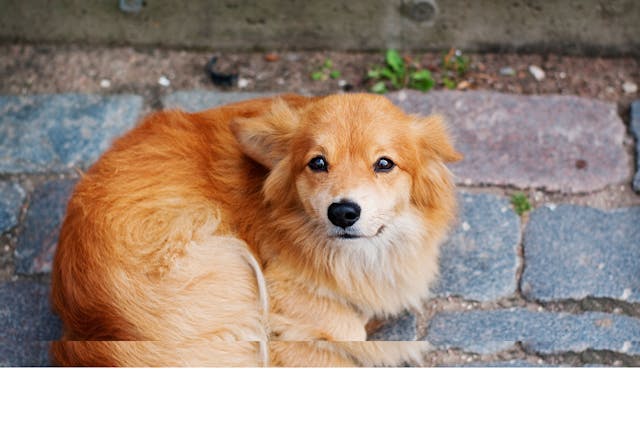
Mar . 18, 2024 10:12 Back to list
Coccidia-Coccidia in Dogs
What is Coccidia?
Coccidia is a protozoa passed through the stool. An infected dog will eliminate the feces containing the organism into the environment, where it can survive for up to one year. Once the parasite is consumed by your dog, the oocysts (immature coccidia) found in the stool will make their way to the digestive tract, enter the intestinal lining cells, and reproduce. The cells then rupture, releasing the parasite. The coccidia can reproduce very rapidly, thus causing significant damage to the intestine.
Coccidiosis is the disease caused by the one-celled organism, coccidia. The organism invades and damages the intestinal wall, causing diarrhea which can become life threatening. Coccidiosis does not always show symptoms but will often cause serious complications in puppies (because they have an underdeveloped immune system) and immunosuppressed dogs.
Symptoms of Coccidia in Dogs
Coccidia can be present in the intestine of your pet and remain asymptomatic. However, once symptoms begin to become evident, your canine family member can become very ill. Take your dog to the clinic without delay if you see any of the following signs.
- Watery, mucousy diarrhea
- Explosive diarrhea that may eventually become bloody
- Lethargy and weakness
- Dehydration
- Abdominal discomfort and tenderness
- Vomiting
- Weight loss
- Little or no appetite
It should be noted that puppies and dogs with weakened immune systems can eventually die if not treated for coccidiosis.
TIMELINE
The coccidia oocyst develops in 3 to 5 days within the intestine and is capable of passing infection. The communicable offspring multiply rapidly, releasing thousand of oocytes in the stool of an infected dog.
At least four genera of coccidia affect dogs:
- Isospora canis
- Isospora neorivolta
- Isospora ohioensis
- Isospora burrowsi
Favorable conditions for the coccidia oocyst are moisture, oxygen and a warm enough temperature.
Causes of Coccidia in Dogs
Though some dogs may not show any ill signs from the coccidiosis, oocysts are still being shed in the feces, which will continue the infectious cycle when passed to their canine buddies.
- Dogs can ingest the coccidia from contaminated soil, and from hunting and eating infected rodents
- Fecal matter, or food and water that may have been contaminated by fecal matter, will also pass on the oocysts
- Coccidia is very resistant in the environment, even in freezing conditions
- Coccidiosis becomes very prevalent in conditions of overcrowding, poor sanitation, and poor nutrition
- Coccidiosis can be a common occurrence in puppy mills, shelters, and very busy breeding kennels
- Puppies who are stressed, for example after weaning or leaving the mother, may develop symptoms
Diagnosis of Coccidia in Dogs
The veterinarian will base the diagnosis on the clinical signs seen when your dog arrives at the clinic, as well as on information provided by you. The veterinary team may ask the following questions.
- What signs have you seen that indicate that your pet is ill?
- How is his appetite?
- How long has your dog had diarrhea?
- Is diarrhea becoming worse?
- Is there blood present in the stool?
- Is your dog vomiting?
- Can you describe his general demeanor of late?
After the physical examination, the veterinarian will test the stool of your pet. Results must be obtained from a sample that is less than 24 hours old, and the freshest sample you can provide is always the best.
A fecal flotation test will be done, whereby the fecal matter is mixed with a solution that causes immature parasites to float to the top. The organisms are then placed on a glass slide and examined under the microscope. The most common form of coccidia organism (Isospora canis) will be easily seen with this diagnostic procedure.
Puppies and older immunosuppressed dogs may be tested for anemia as this can be a common secondary condition to coccidiosis.
Treatment of Coccidia in Dogs
It should be noted that if you have a multi-dog family, all canine members should be treated, whether symptomatic or not, to prevent further cases of coccidia or recurrence.
If your pet is very ill when he arrives at the clinic, he may need to be admitted in order to stabilize his condition before treatment, particularly if he is dehydrated or the diarrhea is severe.
If your pet is experiencing a milder case of coccidiosis, he can be treated at home, and will be given medication to kill the parasite. Oral medication is known to be very effective. Antibiotics may be prescribed as well. If necessary, antidiarrheal drugs will be given to aid in your furry family member’s recovery.
The veterinarian will ask you to schedule an appointment for two weeks later, in order to retest for the presence of parasites.
Recovery of Coccidia in Dogs
Complete the full prescription given to your pet, even if he appears to be feeling better. Never stop medication early, unless there are side effects that are worrying you, in which case you will need to contact your veterinary team. A change of medication could be required.
Be certain to return to the clinic for retesting of the stool, to ensure that the coccidia has been eliminated.
At home, isolate your infected dog until you know he is clear of coccidiosis to prevent transmission to other canine family members or friends. Clean up the feces in your yard thoroughly and promptly. Disinfect all crates, water bowls, feeding dishes, floors and bedding. It is a good idea to repeat the cleaning process several times while your pet is recovering from the coccidian infection.
-
Immunovital Fish Feed Factory | AI-Optimized Nutrition
NewsAug.03,2025
-
Quality Bacillus Coagulans BC30 Factory - Expert Production
NewsAug.02,2025
-
China Salivation AI with GPT-4 Turbo Features
NewsAug.01,2025
-
Epic Sepsis Factories: AI-Driven Detection with GPT-4 Turbo
NewsJul.31,2025
-
Acute Salpingitis and Oophoritis AI Factory
NewsJul.31,2025
-
Premium China Bacillus Subtilis Supplier & Factory Solutions
NewsJul.30,2025





